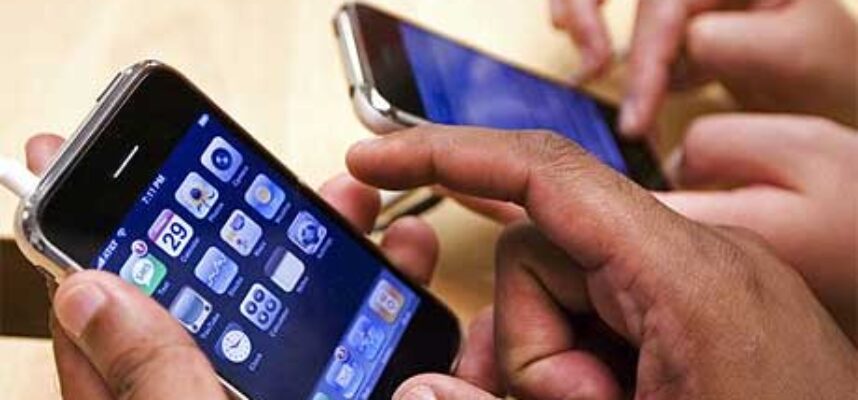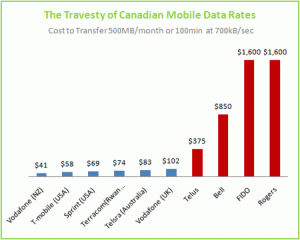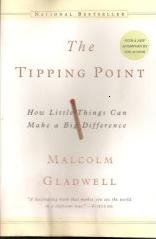21 May 2008
0 CommentsIndigestion from “Half Baked” Mobile Web Browsing
 Blackberry Pearl – Convergence of Network and Information
Blackberry Pearl – Convergence of Network and Information
Yesterday, Chris Sacca (ex Googler extraordinaire, investor in the likes of Twitter and recent Tech Leadership Conference Keynote speaker) shot a provocative salvo across the bow of the Twittosphere. Many times Twitter is a true belwether, capturing the pulse of market dynamics. And, although saying this might not go down well in Waterloo, it struck a chord with me. Here’s Chris’s shot of wisdom:
“Surfing the web on a Blackberry is like trying to prepare dinner for four with an Easy-Bake” Oven.
In the mobile universe, aren’t we forever doomed to suffer a hopelessly limited and painful browsing experience? And, why is mobile browsing that important anyway?Whizzy gizmos like the accelerometer aside, the key breakthrough of last year’s Apple iPhone launch was to deliver mobile browsing that is every bit as rich as the equivalent desktop experience. The entire universe of websites accessible to the desktop user simply works in the iPhone browser. This is equally true on 2G EDGE networks, and doesn’t depend on the forthcoming release the iPhone 2 with its higher speed 3G HSDPA capabilities.In short, Apple has moved the bar a quantum leap higher for the entire mobile market. Constrast that with the Blackberry (Pearl or Curve) which so frustrates Chris Sacca. Many sites that work on my notebook give errors, render poorly on the Blackberry screen or use features which simply aren’t supported. On top of that, the browsing and rendering is unbelievably s-l-o-w. Nokia on the Symbian S60 phones, like the N95, is way ahead of Blackberry, but still needs to retool to catch Apple’s strong lead.But, most of all, this is so important because mobile browsing is becoming the only application mechanism that matters for mobile. The myriad hassles of operator locking and closed platforms has effectively rendered the market for downloaded mobile applications stillborn. 2008 is the year in which it has become crystal clear to all of us in the mobile space, that the application platform of choice is, in fact, the browser.The test of Blackberry’s ability to reassert some market leadership will be the new Blackberry Bold which is expected later in 2008. Most people in the know are keenly awaiting to see if it’s browsing experience can rise the the iPhone challenge, or will it merely close some of the gap with Nokia which is itself still an also ran? For me, this may well be the most important strategic market inflection point for Blackberrry over the next year or so. Thus, it would be great if someone in the RIM-plex would care to comment?


 Electronic Bill Presentment and Payment: In the late 1990’s, Electronic Bill Presentment and Payment (EBPP), in which consumer bills that had been printed and mailed via the postal service, are instead processed automatically as a web service, was an exciting emerging market. I can remember the palpable frustration of
Electronic Bill Presentment and Payment: In the late 1990’s, Electronic Bill Presentment and Payment (EBPP), in which consumer bills that had been printed and mailed via the postal service, are instead processed automatically as a web service, was an exciting emerging market. I can remember the palpable frustration of  The roots of this problem have been discussed many times, including in this blog and by
The roots of this problem have been discussed many times, including in this blog and by 
 From that springboard, he became interested in the way fads and other changes propagate through society, especially illustrated by recent books like Malcolm Gladwell’s
From that springboard, he became interested in the way fads and other changes propagate through society, especially illustrated by recent books like Malcolm Gladwell’s  Now, let’s drill a bit deeper to understand why this is so important. Malcolm Gladwell is a (very persuasive) popularizer of complicated and transformational ideas. By contrast, Duncan Watts, associate professor of Sociology at Columbia University and author of the 2003 book
Now, let’s drill a bit deeper to understand why this is so important. Malcolm Gladwell is a (very persuasive) popularizer of complicated and transformational ideas. By contrast, Duncan Watts, associate professor of Sociology at Columbia University and author of the 2003 book
2 Aug 2008
0 CommentsBrands, Trust and The Fine Print
In today’s mail I received a tantalizing offer from Bell Canada Long Distance. It promised the ability to “Call the world without limits” by delivering “Unlimited World Long Distance Plan $29.95/mo.” With calls to over 50 countries plus Canada and USA included, on the face of it, that’s a pretty attractive offer.
But, I’ve learned that, when dealing with the telecoms industry whether landline or wireless, it pays to read the fine print. And, sure enough, in very small type at that bottom it says “excludes calls to mobile phones and wireless devices.” Sadly, when I call overseas, where mobile penetration is generally at or even above 100 mobiles for 100 population, over 95% of my calls are to mobile phones. So, far from being unlimited, this plan is really a bit of a “bait and switch” which might well increase my calling costs. In the monthly billing cycle, the arrival of the first bill post sign up would almost certainly make any customer’s blood boil. At a macro level, I’m really curious as to what such deceptive marketing campaigns say about customer relations and basic trust in the 21st century?
Also this week, Canadian Minister of Industry, Jim Prentice, dialled up his earlier suggestion to mobile operators Bell and Telus to reconsider their ill-conceived plan to charge customers for incoming SMS text messages, including SPAM. Minister Prentice, after meeting Bell CEO George Cope, publicly raised the spectre of increased wireless regulation in Canada as a way to increase pressure for the pair to see common sense. Clearly, for companies that act in the public interest, using the police-like powers of regulation to curb those who stray from this idea must strike a delicate balance. Again, is this a trust issue? Are Bell and Telus exhibiting corporate greed or simply strategic incompetence?
Trust issues aren’t confined to the US and Canada. In Germany, T-Mobile has been advertising their new iPhone mobile data plans as “open internet access with unlimited data” (“Freier Internetzugang mit unbegrenzter Datenflatrate”) For the details, see a fascinating post from TMCnet. Indeed, customers were finding to their dismay that this open internet access specifically disallowed such basic mobile web services as VoIP, IM, and VPN. Furthermore, the supposedly unlimited data plan was actually capped. This is almost unbelievable, especially in Germany which, being in the European Union, generally benefits from far superior mobile regulation than we enjoy in US and Canada. In a David versus Goliath situation, sipgate, a small VoIP application provider for Apple iPhone, stood up for consumers and has won a preliminary court injunction against mighty T-Mobile. In this instance, there can be no doubt that t-Mobile is just plain wrong. Once again, we wonder how clearly deceptive advertising affects trust between T-Mobile and its customers?
For once, the lessons for companies are simple, yet so often overlooked. In this age of call centres, web self service and mobile nomadism, opportunities for developing personal relationships between companies and customers are on decline. As people feel increasingly distant from the companies that provide them goods and services, the importance of trust in business dealings goes up. I would argue that because trust is built over the long term, it needs to become a vital part of every company’s brand equity. Although economists have yet to devise specific measurements, it is clear that a lack of trust can kill a multi-billion dollar brand very quickly and in such a way as to make recovery extremely difficult and costly, if not impossible.